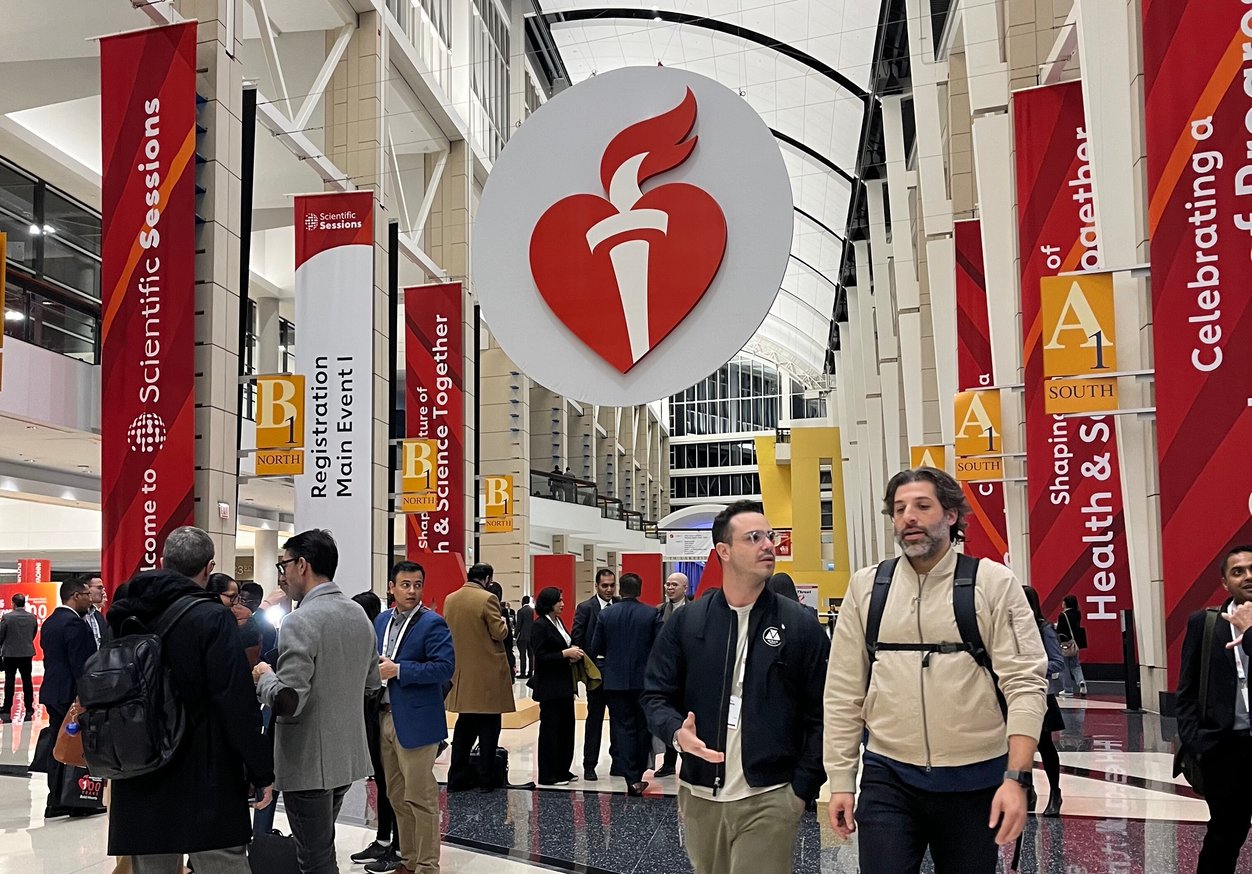cardiovascular disease
AHA conference spotlights GLP-1s and new drugs that target lipoprotein(a)

Elizabeth Cooney for STAT
Between President-elect Trump’s return to power, the proliferation of GLP-1 medications, and promising trial data for two medications targeting a common risk factor for cardiovascular disease, there was no shortage of conversation topics at the American Heart Association’s conference in Chicago.
One attention-getting presentation offered scientific details from the SUMMIT trial, which looked at tirzepatide versus placebo in 731 people who have heart failure with preserved ejection fraction, or HFpEF. The drug,sold as Mounjaro (diabetes) and Zepbound (obesity), lowered the risk of heart failure becoming worse or cardiovascular death occurring in adults with obesity.
Separately, Eli Lilly and Silence Therapeutics both reported promising data on drug candidates meant to lower lipoprotein(a) levels, a promising development for a serious cardiovascular disease risk factor that isn’t impacted by statins, diet, or exercise. Read more here.
weight loss drugs
Opinion: The FDA's risky stance on GLP-1 compounding
The FDA is foregoing its public health obligations by allowing pharmacists to compound GLP-1 medications as an alternative to brand-name drugs like Wegovy or Ozempic, Scott Gottlieb, the agency’s former commissioner, writes in a new First Opinion for STAT.
In many cases, GLP-1 drugs are being compounded in pharmacies that do not meet the FDA’s highest manufacturing safety standards, Gottlieb argues. And while the agency initially cited shortages in certain GLP medications as a reason it was allowing compounding to continue, those shortages have largely resolved.
The FDA was never intended to use its discretion on compounding enforcement as a means of helping to lower drug prices, Gottlieb argues, and doing so could set a precedent that leaves the agency vulnerable to outside political pressure. Read more here.

